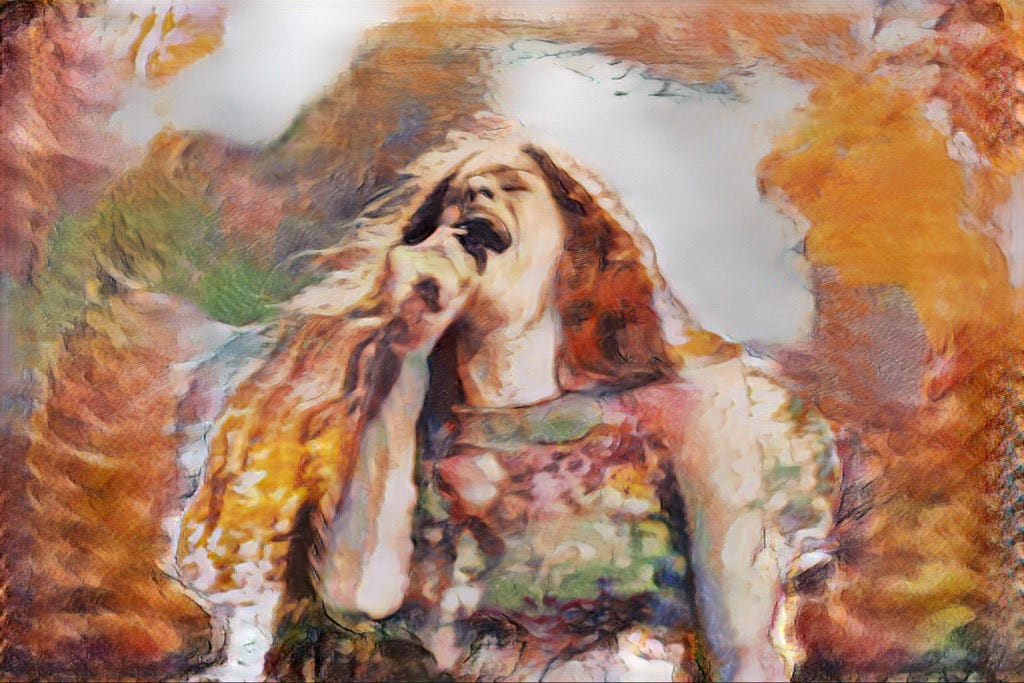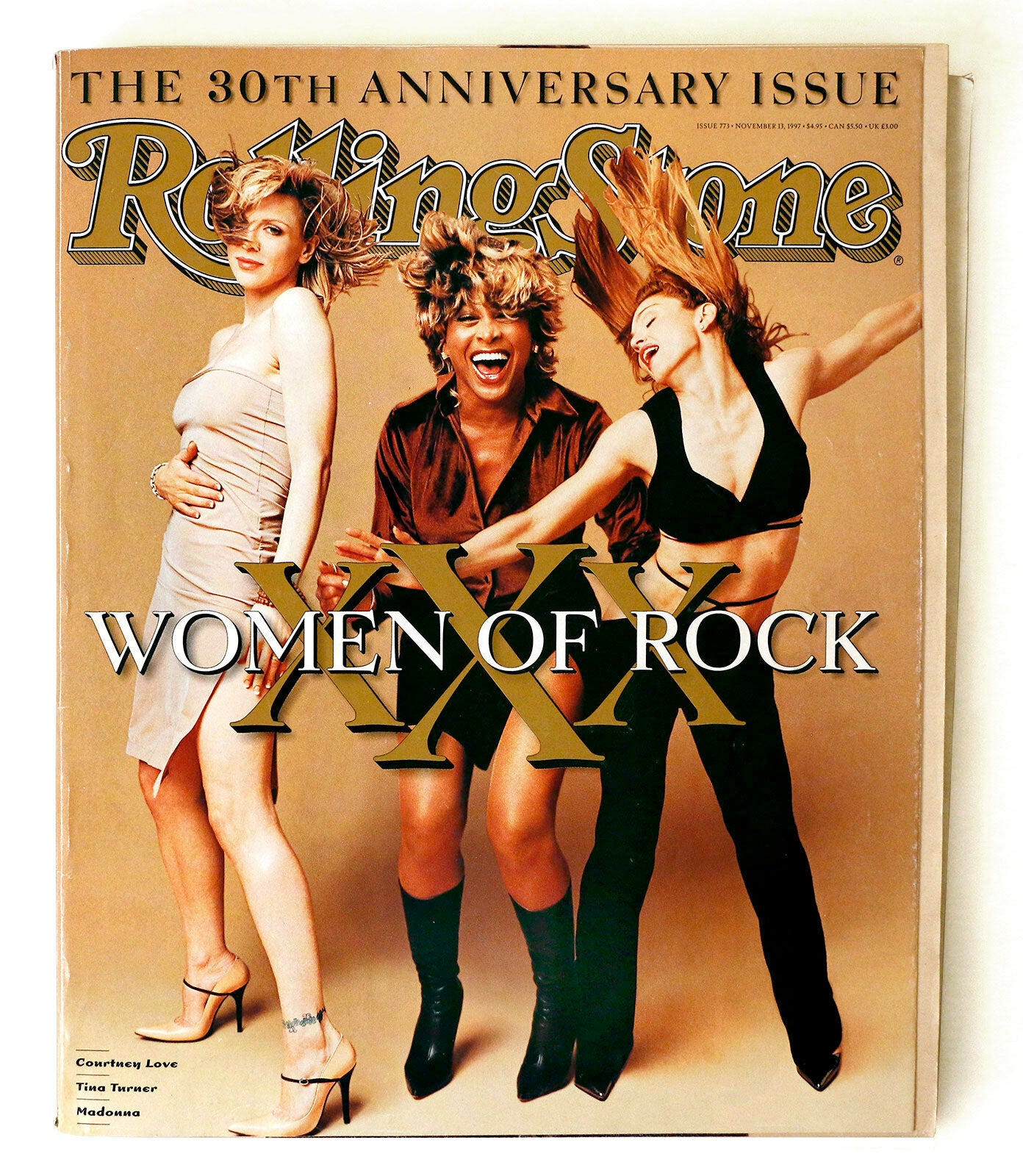Female is Not a Musical Genre
This essay project will honor females as artists in their genre and musical time period, not because of their gender alone.
I used to think I was a good guy when I would say how much I loved female singers. I said it frequently. I was a "white knight" back in the ‘90s before I'd ever heard the term. It was well-intentioned and I’m not feeling a lot of self-loathing over it, but I’ve changed my tune and I wanted to talk about it. I thought I was being an advocate or a counterbalance to the people who wouldn't give women a chance to be front and center in the rock music world. And, to cut myself a little bit of slack, maybe it wasn't such a strawman back when I was a teenager in the ‘90s. However, I feel like I was slow to recognize how antiquated my take had become in my 30s and now into my 40s.
It's come to my attention over the past few years that many female artists feel and felt like they were being defined by their gender instead of the actual art they created. Much to my chagrin, these talented artists felt this bias was perpetuated even by those like me who thought we were pumping women up as advocates. It turns out we were still pumping them up but with a gender-based caveat.
At first, I was mad when I read this. I got defensive because I felt like I was being attacked for trying to help. Then, it finally clicked for me that it wasn’t about me at all, and I should stop personalizing it. Women were once a novelty in rock music, but that’s old news. It was time for me to get out of the past. It sounds so obvious now as I type it, but women deserve to be discussed in the context of the musical genre and time period they worked in, not as a part of some gender-based grouping.
In the 1990s, when I was coming of age as a music fan, female rockers were still thought to be a novelty by many fans and media. Coming off of the 1970s and 80s, where rock and roll was almost entirely male-dominated, even my best efforts to give credit to these artists comes off like a "well actually, women can rock too!" My words of support were more of a backhanded compliment. It wasn’t totally my fault either. I was a product of the time period I came up in. I have mentioned before that I was a voracious reader of music news via Rolling Stone, Spin, and even Entertainment Weekly. I had an entire wall of my bedroom that was covered corner to corner with my favorite magazine covers. Does anyone remember this one that celebrated Courtney Love, Tina Turner, and Madonna as “WOMEN OF ROCK”? This was November of 1997.
I was already finished with Rolling Stone by 2002, but how about this one grouping Shakira, Britney Spears, and Mary J. Blige?
Is it any wonder that these artists who had only one thing in common got tired of being grouped together?
The truth is there were many phenomenal female artists that I loved in my formative music years. I could see myself writing essays about Natalie Merchant of 10,000 Maniacs, Sheryl Crow, Aimee Mann, Alanis Morrissette, Tori Amos, Delores O'Riordan of The Cranberries, The Sundays, and more. What was hard for me to realize was that being female is the only thing tying these outstanding, disparate artists together in the narrative I created. Why should I group Alanis to Tori Amos or Aimee Mann to Natalie Merchant? I thought I was being nice, but I defined them less by their musical skill or the genres they served and assigned them a category based on who they are instead of what they do.
When I talk about women in my weekly essays, I want you to know it’s in this context. I will be talking about them for how they fit with their peers and in the context of the art they created, and the time period they worked in. I will do this just like I have been doing with albums from other bands. If their being female is part of the story specifically, I'll talk about it, but each will get their own essay. I am wary of the fact that grouping these essays in a block might look like I'm once again pigeonholing them for being female, so I won’t do that. But know this. Every essay will tie back to this more significant point: these artists live in a genre with peers who aren't necessarily just female. I hope to magnify just how different these artists are musically and culturally.
When and if I write about Boys for Pele by Tori Amos, it's not to draw a similarity with other females, bit to highlight Tori Amos for "Hey Jupiter" because it is one of the most beautiful, heartbreaking songs I've ever heard in my entire life.
When and if I write about The Cranberries it will be me once again revisiting the record store that smelled like a seeping Subway because I just had to have the album with “Zombie” on it.
When I talk about The Sundays, it will be my not-so-veiled shots at The Rolling Stones because The Sundays’ version of “Wild Horses” is the definitive one in my book.
When I write about Aimee Mann, it will be to talk about when “Deathly” hits its peak in live performances and sets every one of my hair follicles on fire.
I’m going to admit to you that I had a huge crush on Natalie Merchant when I was 14, but that’s just a tiny part of the story. I’ll spend much more time talking about how she not only honored the song “The Gulf of Araby,” but probably redefined it with her immense talent.
I’m not sure when I’ll feature my first, but it very well could be the phenomenon that was Alanis Morissette’s Jagged Little Pill, which recently celebrated its 25th birthday during the pandemic.
I’ll also try not to pigeonhole Alanis for her other defining characteristic…
You know. Being Canadian like Bryan Adams and Nickelback.






I never think of praising female singers as a statement of support for their gender. For me, it's about feeling and tonality. Just as there's a sonic difference between tonewoods in a guitar, there's a sonic difference between male and female singers. In punk especially, I absolutely love the juxtaposition of the angular guitar sound with the female voice.